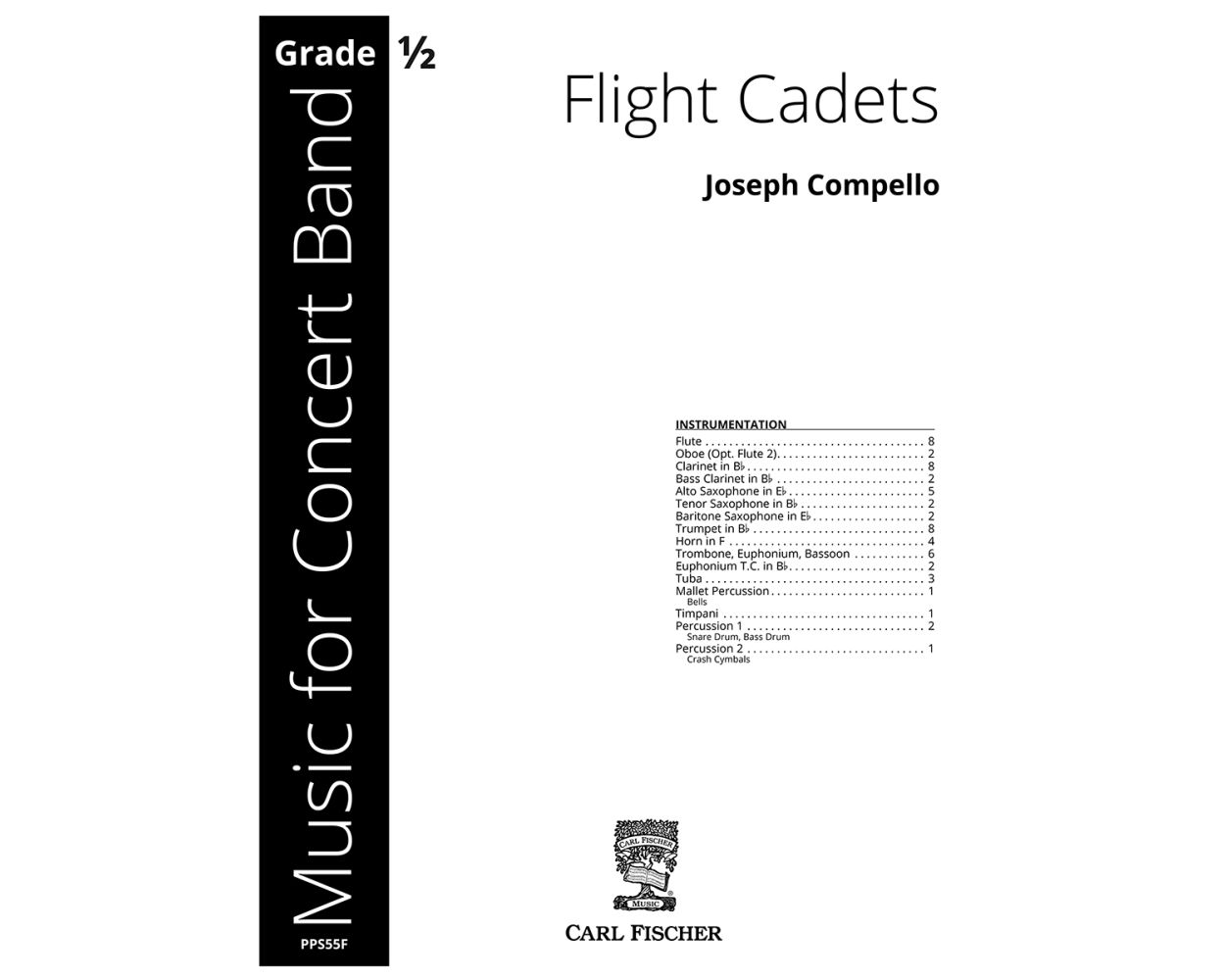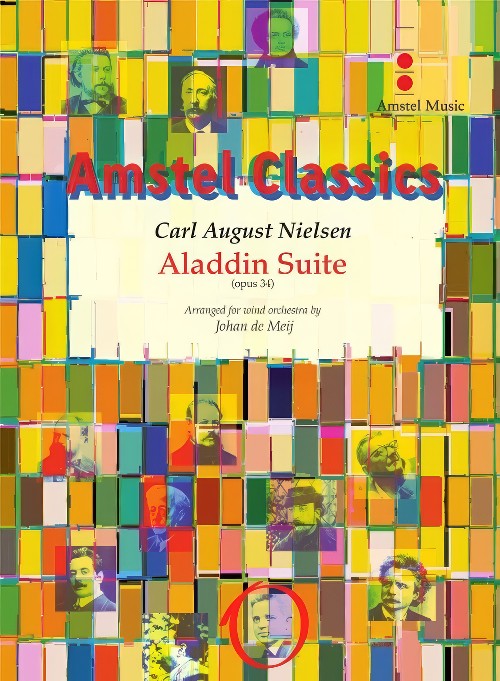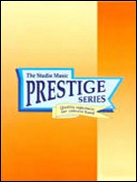Results
-
£53.95
Let the Flag of Freedom Wave - James Swearingen
The legacy of the march is rich and steeped in tradition. Now you can bring the spirit of national unity to your next concert with this easy original march by James Swearingen. Complete with all the elements found in more difficult marches, this is an excellent way to let your students shine and invigorate your audience. Sure to work with smaller instrumentation, Let the Flag of Freedom Wave is ideal as a concert piece or festival march! (2:05)
Estimated dispatch 7-14 working days
-
 £66.00
£66.00Future of Tomorrow
Using brief excerpts from Malay folk songs, this concert march has been carefully written with younger players in mind. With ample opportunities for teaching tempo consistency, articulation, rhythmic precision, and musical phrasing this joyful, accessible selection is intended to bring out the best in your young musicians who are the future of tomorrow. A great choice for your contest or festival march selection.
Estimated dispatch 12-14 working days
-
 £39.00
£39.00Flight Cadets
Written for first-year band students, this accessible and fun march will be a great contest or festival march choice. The development of tempo consistency, articulations, and the ability to count rests are key educational components of this beginning-level composition. Your ensemble and audiences will enjoy this piece intended to fit your developing band's needs while improving its skills.
Estimated dispatch 12-14 working days
-
£54.95
Praise - Score and Parts - Wilfred Heaton
Originally published for brass band in 1949, Wilfred Heaton's festival march Praise is a classic example of his creativity and was rightly described as 'groundbreaking' when it first appeared in print. Using an old chorus melody 'Praise, O Praise Him' – a melody that has now fallen from use with The Salvation Army – Praise is full of drive and energy, with typically quirky features that require detailed attention in rehearsal.
Estimated dispatch 7-14 working days
-
£9.95
Praise - Score only - Wilfred Heaton
Originally published for brass band in 1949, Wilfred Heaton's festival march Praise is a classic example of his creativity and was rightly described as 'groundbreaking' when it first appeared in print. Using an old chorus melody 'Praise, O Praise Him' – a melody that has now fallen from use with The Salvation Army – Praise is full of drive and energy, with typically quirky features that require detailed attention in rehearsal.
Estimated dispatch 7-14 working days
-
£109.99
Festival Concert March - James Barnes
Estimated dispatch 7-14 working days
-
 £149.99
£149.99Aladdin Suite - Carl Nielsen
The large creative output of the Danish composer Carl Nielsen (1865 - 1931) contains six symphonies, chamber music, vocal works and music for the theatre: two operas (Saul & David and Maskerade) and stage music for sixteen different plays. The stage music for Aladdin was written at the request of Johannes Nielsen, the director of the Royal Theatre in Copenhagen. This production was based on the drama Aladdin (1805) by the Danish author Adam Oehlenschlger. Already before the premiere at the Royal Theatre, Carl Nielsen had adapted some of the music for the concert hall: he conducted the first performance of six of the seven movements of the concert suite on February6th, 1919. Johan de Meij's transcription for symphonic band contains the following movements: I Oriental Festival March II Aladdin's Dream / Dance of the Morning Mist III African Negro Dance
Estimated dispatch 7-14 working days
-
 £148.00
£148.00Aladdin Suite (Concert Band - Score and Parts) - Nielsen, Carl - De Meij, Johan
The large creative output of the Danish composer Carl Nielsen (1865 - 1931) contains six symphonies, chamber music, vocal works and music for the theatre: two operas (Saul & David and Maskerade) and stage music for sixteen different plays. The stage music for Aladdin was written at the request of Johannes Nielsen, the director of the Royal Theatre in Copenhagen. This production was based on the drama Aladdin (1805) by the Danish author Adam Oehlenschlager. Already before the premiere at the Royal Theatre, Carl Nielsen had adapted some of the music for the concert hall: he conducted the first performance of six of the seven movements of the concert suite on February6th, 1919. Johan de Meij's transcription for symphonic band contains the following movements: I. Oriental Festival March; II. Aladdin's Dream / Dance of the Morning Mist; III. African Negro Dance
Estimated dispatch 7-14 working days
-
 £124.95
£124.95SWORD AND THE CROWN, The (Prestige Concert Band - Score and Parts) - Gregson, Edward
In 1988 I was commissioned by the Royal Shakespeare Company to write the music for The Plantagenets trilogy, directed by Adrian Noble in Stratford-upon-Avon. These plays take us from the death of Henry V to the death of Richard III. Later, in 1991, I wrote the music for Henry IV parts 1 and 2, again in Stratford. All of these plays are concerned with the struggle for power (the crown) through the use of force (the sword) and they portray one of the most turbulent periods in the history of the British monarchy.This work quickly became established in the mainstream repertoire and has received performances worldwide as well as five commercial recordings and many broadcasts. In 2002 I was approached by the Parc and Dare Band regarding their summer festival and commissioned to do a version for brass band. This was given its first performance in Treorchy Hall by the combined bands of Black Dyke and Parc and Dare conducted by Nicholas Childs.When the Royal Air Force Music Services commissioned me to write a work especially for their British tour in 1991 I immediately thought of turning to this music and transforming some of it into a three-movement suite for symphonic band.The first movement opens with a brief fanfare for two antiphonal trumpets (off-stage), but this only acts as a preface to a Requiem aeternam (the death of Henry V) before changing mood to the English army on the march to France; this subsides into a French victory march, but the English army music returns in counterpoint. Finally, a brief reminder of the Requiem music leads to the triumphal music for Richard Plantagenet, Duke of York, father of Edward IV and Richard III (the opening fanfare transformed).The second movement takes music from the Welsh Court in Henry IV (part 1) which is tranquil in mood; distant fanfares foreboding battles to come are heard, but the folktune is heard three times in different variations and the movement ends as it began with alto flute and gentle percussion.The final movement starts with two sets of antiphonally placed timpani, drums and tam-tam, portraying the 'war machine' and savagery of battle. Trumpet fanfares and horn calls herald an heroic battle theme which, by the end of the movement, transforms itself into a triumphant hymn for Henry IV's defeat of the rebellious forces.- Edward GregsonPerformance time 13'54"Recorded on QPRM117D FESTIVAL OF MUSIC 1991, Massed Bands of the Royal Air ForceRecorded on QPRM120D THE SWORD AND THE CROWN, Central Band of the Royal Air Force'Finale' recorded on QPRM142D FESTIVAL OF MUSIC 2002, Massed Bands of the Royal Air Force)
Estimated dispatch 7-14 working days
-
 £54.00
£54.00The Red Cape
Looking for an alternative to the same old American style march for festival? The Red Cape may be your answer. It is written in a Spanish style reminiscent of some of the classic Spanish marches like Amparita Roco, but it is within the technical limitations of young bands. Composer James Meredith draws on his many years of being a band director to give us something fresh and different for your next contest or festival warm-up march.
Estimated dispatch 12-14 working days
